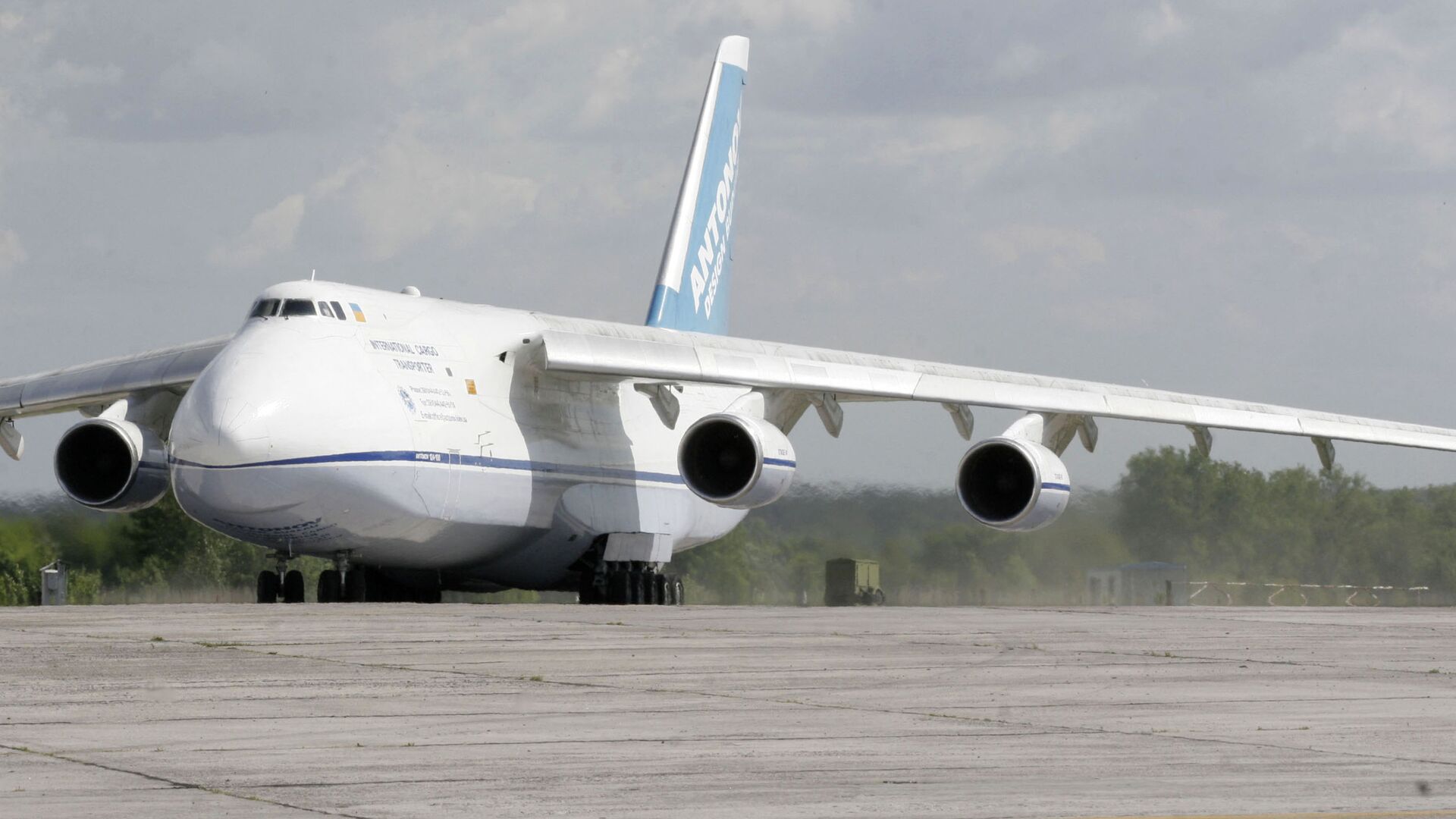Canada Breached Own Sanctions Legislation by Grounding Russian Cargo Jet - Embassy

© RIA Novosti . Sergey Starostenko
/ Subscribe
WASHINGTON (Sputnik) - Canada breached its own sanctions legislation by grounding Russia's An-124 jet that was transporting humanitarian cargo under a contract with the Canadian government that was inked before the country closed its airspace for Russian aircraft, deputy chief of mission of the Russian Embassy in Ottawa told Sputnik on Friday.
"From our standpoint, there are violations, and we officially notified the Canadian Foreign Ministry that there are a complex of issues which point to unfair practices by their side," Vladimir Proskuryakov said. "
First of all, it was a humanitarian contract in the interests of the Canadian government. And they knew perfectly well that the plane was on its way and would land on February 27. Announcing the sanctions on February 28 and simply turning their back and pretending that nothing happened and instead sacking the plane can hardly be considered gentlemanly behavior."
Proskuryakov explained that Antonov 124, operated by Russia’s cargo carrier Volga-Dnepr, arrived in Canada on February 27 from China to Canada with a shipment of COVID rapid tests under a contract with the Canadian government.
The plane was supposed to leave on February 28, however, on February 27 the Canadian authorities closed the country's airspace for Russia's aircraft and officially denied a permit for this aircraft to leave.
Proskuryakov added that in line with the sanctions, any connection to Russia (for example, Russian pilots) automatically leads to a ban on entering Canadian airspace , as well as a ban on departure for planes on the ground.
The diplomat noted that the after the aircraft arrived and unloaded its cargo, the Canadians took it away. The plane is now empty.
Proskuryakov pointed out the contradiction between Canada's action and Western nations' statements that sanctions do not apply to humanitarian matters.
"The Canadian sanctions' wording can be interpreted very broadly, and that is why, despite the fact that our carrier was fulfilling an order between the Canadian government and the Chinese, and was essentially working in the interests of the Canadian federal government, it was allowed to fly in, but not allowed to fly out, despite the fact that in the Canadian sanctions legislation there is a clause that those who fulfill previously concluded contracts cannot be subjected to restrictions," Proskuryakov said.
"That is, in fact, here they even violated their own interpretations of the sanctions legislation only to hurt the Russian company."
Proskuryakov concluded by stating that the Canadians have taken an uncompromisingly tough stance with regard to anti-Russia sanctions.
"Canada has become not just a closed zone, it is also toxic, because there is a threat of arrest on any air or sea unit that comes within the reach of the Canadian government," he said.
On February 24, Russia launched a special military operation in Ukraine after the breakaway republics of Donetsk and Luhansk requested help in defending themselves from intensifying attacks by Ukrainian troops. Western nations have responded with comprehensive sanctions, including restrictions on the Russian central bank, export control measures, SWIFT cutoff for select banks, and closure of airspace to all Russian flights.
